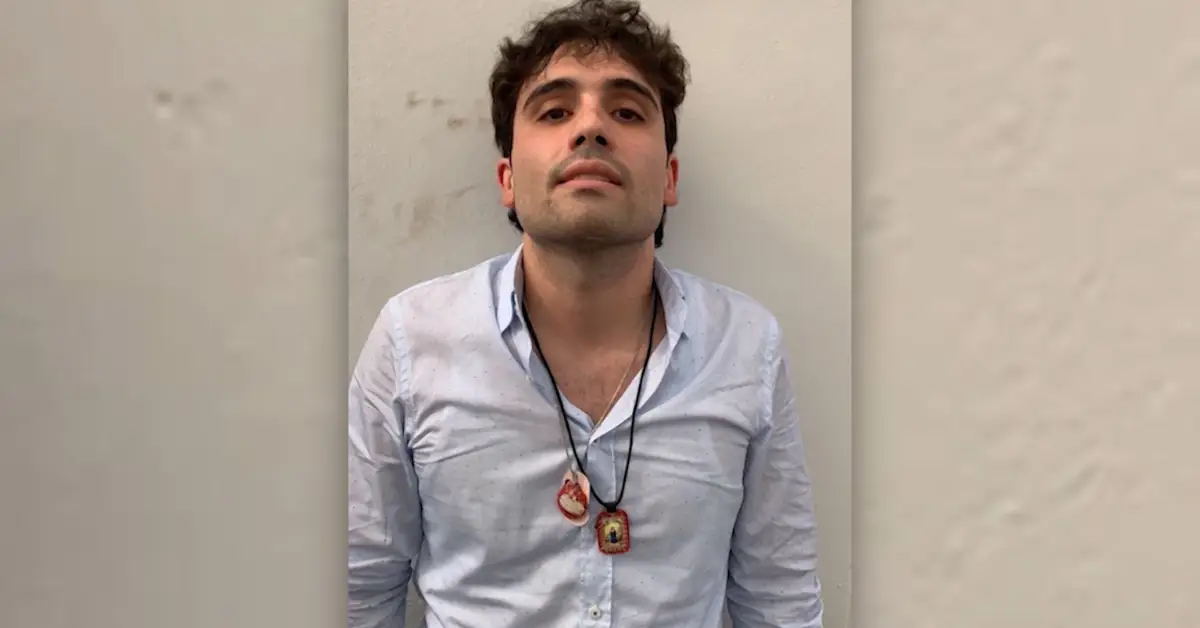El Chapo’s Son Ovidio Arrested In Mexico: Ovidio Guzmán, the accused head of a drug cartel, was seized in a tense operation in northern Mexico on Thursday, which resulted in the deaths of 29 people. On Friday, a federal judge in Mexico City stopped his extradition to the US.
We want Guzmán for drug trafficking, and they have promised up to $5 million in exchange for information that will result in his detention. They refer to him as “a senior member of the Sinaloa Cartel.”
The US has an arrest warrant out for Guzmán dated September 19, 2019, the foreign minister of Mexico, Marcelo Ebrard, announced Thursday. However, he added that due to legal requirements, the extradition of Guzmán might not happen immediately. Guzmán is currently the subject of legal actions in Mexico, he said.
Following a hearing at the Altiplano maximum security federal prison where Guzmán is imprisoned, a different federal court reportedly ordered Guzmán to remain in 60 days of preventive detention for extradition, according to the Televisa network and other Mexican media.

On July 11, 2015, Guzmán’s father, “El Chapo,” had escaped from the Altiplano prison via a mile-long tunnel with a motorcycle on tracks. Four years later, he was apprehended and found guilty of ten counts in the US, including running an ongoing criminal enterprise, trafficking in drugs, and possessing a firearm. In addition to receiving a life sentence plus 30 years in jail, he was also required to surrender $12.6 billion.
To stop more carnage, President Andrés Manuel López Obrador ordered the release of Ovidio Guzmán after his arrest by federal police in October 2019.
His most recent arrest occurs only days before the North American Leaders Summit in Mexico City, which US President Joe Biden and Canadian Prime Minister Justin Trudeau will attend.
Gladys McCormick, an associate professor at Syracuse University specializing in Mexico-US relations, told CNN in an email that López Obrador may exploit Guzmán’s capture to demonstrate to the US that he is “in control of the military forces and Mexico’s security situation.”
“It also defuses the power behind any ask from the Biden administration to stem the tide of fentanyl and other narcotics across the border,” she added.
López Obrador disputed that Guzmán’s arrest was connected to Biden’s visit at a news conference on Friday, asserting that Mexican police had acted independently.
“About interpretations, there are a lot of them. We do not share them. We acted with autonomy,” the Mexican President said.
Violent Aftermath
Chaos broke out in the city on Thursday when Guzmán was taken into custody there. Due to conflicts in many places, the authorities urged civilians to seek refuge.
Defense Minister Luis Cresencio Sandoval stated on Friday that his detention culminated in a protracted operation involving 200 special soldiers. Due to fights with cartel members occurring in several parts of the city, local authorities advised residents to take refuge at home.
After Guzmán and 21 other suspects were taken into custody, violent battles in the state of Sinaloa in northern Mexico resulted in at least 19 alleged gang members and 10 military personnel dying. There were no reported civilian fatalities or injuries.
Since Guzmán was taken into custody, the minister stated, security at Altiplano jail has been boosted.
Later on Friday, the President declared that the city had become more tranquil and that workers were attempting to clear the roadways.
López Obrador stated, “In Culiacán, we opened all the blocked highways, and we are trying to remove the automobiles parked alongside the streets.”
The Sinaloa Cartel, of which “El Chapo” was the boss, is one of the most potent drug trafficking organizations in the world, and it has its headquarters in the state of Sinaloa, where Culiacán sits.
Law enforcement investigations, according to the US State Department, showed that Guzman and his brother Joaquin Guzmán-López “received a substantial deal of the narcotics revenues” after the passing of another brother, Edgar Guzmán-López.
They “started using a significant portion of the money to buy cocaine in Colombia and marijuana in Mexico. As they began experimenting with making methamphetamine, they also started purchasing vast quantities of ephedrine from Argentina and coordinated for smuggling of the substance into Mexico, according to the State Department.
The State Department claims the brothers are also in charge of 11 “methamphetamine labs in the state of Sinaloa.”



Leave a Reply